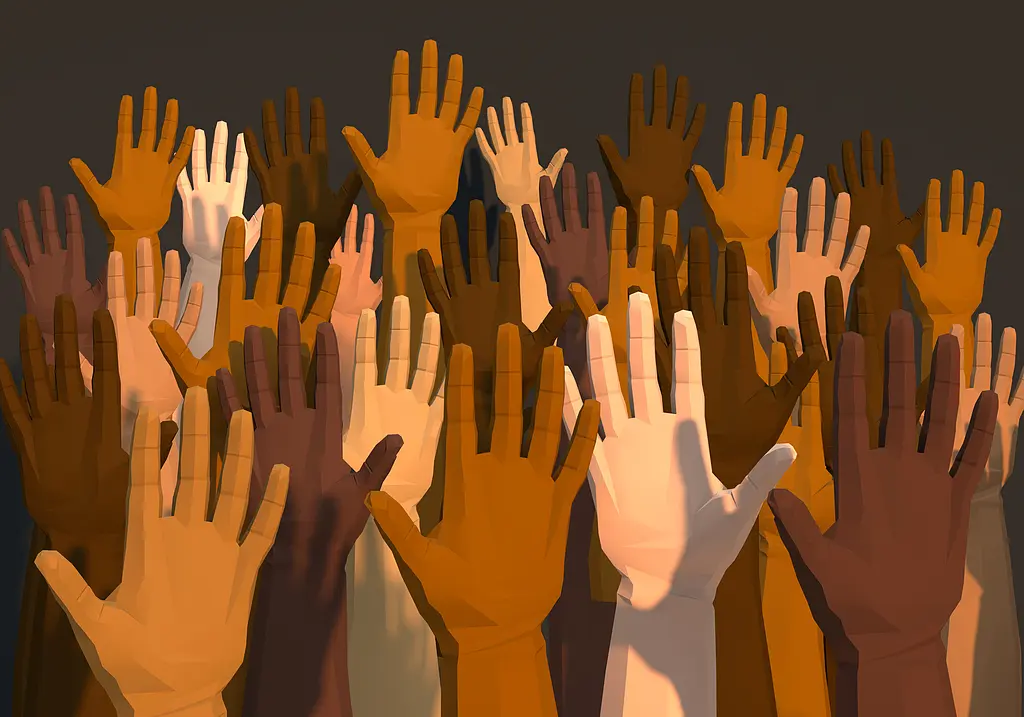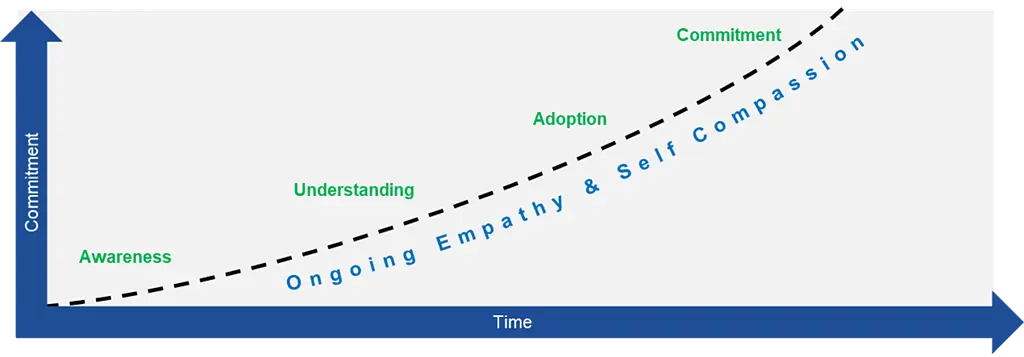What does it mean to lift the veil and expose the truth? What does it mean to turn inward and examine your own thoughts and beliefs? What does it mean to move forward with empathy?
On May 25, 2020, George Floyd was brutally murdered, his last words and breath caught on tape. While not the first murder of a Black person at the hands of police to be recorded and exposed, this video in conjunction with the world being forced to pay attention at home because of the pandemic, ignited a turning point and exposed a truth that many were already aware of – racism is alive, and it is systemic. George Floyd was a father, a son, and a friend, but more importantly he was a human being whose life was taken without consideration for his humanity.
What followed his death can only be described as a collective shift in consciousness evidenced by nationwide protests and a period of self-examination for businesses and institutions, many of which began to examine the racial composition of their workforce and released unambiguous statements against racism.
At RTI, this sparked a larger discussion surrounding the effect of racial trauma on its Black employees and how there needed to be a concerted effort to address racial justice as an institution, both internally and externally. We also provided paid time for employees coping with the trauma surrounding the extrajudicial murder of George Floyd and after recognizing the complexity of the challenges that racial injustice and inequity present.
Since his murder, RTI has created a racial equity and justice research committee that is led by researcher Stephanie Hawkins. This initiative supports research into systemic and structural racism, focusing on the causes and impacts, and works to develop policies and solutions to eliminate them. RTI has also formed an internal Racial Justice and Equity team, led by Cara Valentino. Together with the Diversity Equity and Inclusion council, this group forms the Equity, Diversity, Inclusion, and Belonging (EDIB) office, led by Kristina Brunelle.
These teams have a focus on creating equity for RTI employees and have already begun the first steps of assessing RTI’s internal policies and procedures, and creating recommendations informed by the results of an internal survey on racial equity. The Executive Leadership Team has also made a series of commitments, including participating in ally training, providing ongoing training for staff on issues of bias and racial justice, and making contributions to organizations that work to promote racial justice and equity.
As an institution the changes that RTI are implementing are positive first steps toward achieving equity and racial justice. However, it is imperative that at an individual level every person commits to taking the time to internally reflect and take positive action daily on new learnings.
Racism is multilayered. It is ideological, institutional, interpersonal, and intrapersonal. It is perpetuated by microaggressions that keep the affected party from fully being present in their everyday life.
Specifically, in the workplace, these small actions or exchanges can affect a person’s performance, mental and physical well-being, and can lead to an overall feeling of distrust and invalidation. When these racial stressors are addressed and removed, it creates a safe environment that encourages trust and teamwork and unlocks the possibility of untapped innovation.
The changes that RTI is in the process of implementing only go as far as individual commitment to empathy – not just recognizing and accepting people’s differences but validating their individual experiences and committing to learning how to take positive daily action.


